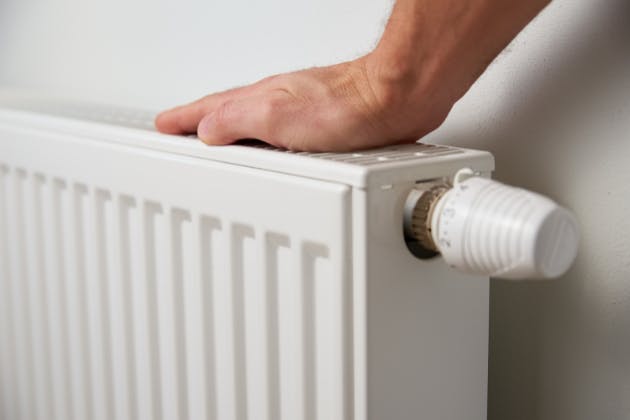When you turn on your heating, you expect your radiators to warm up evenly from top to bottom. So, if you notice that the bottom of your radiators are staying cold while the top feels hot, it’s a clear sign something isn’t quite right. This common issue can affect heating performance and even increase your energy bills if left unresolved.
Why Your Radiators Aren’t Heating Evenly
Radiators that are hot at the top but cold at the bottom are usually suffering from restricted water flow. This prevents heat from circulating properly, leaving cooler spots that reduce overall efficiency. Fortunately, most of the causes are fixable with some straightforward maintenance or professional help.

1. Sludge and Debris Build-up
Over time, rust, dirt, and mineral deposits can accumulate inside your central heating system. This forms a thick sludge that settles at the bottom of your radiators, blocking hot water from circulating freely. As a result, heat only rises to the top while the bottom remains cold.
A professional power flush can clear this sludge and restore efficient water flow. If the problem is left untreated, it can cause more serious damage to your boiler and pipework, leading to costly boiler repairs in Christchurch, New Milton and Lymington
2. Air Trapped in the System
Trapped air bubbles can also cause uneven heating. Air rises to the top of the radiator, preventing water from filling the system properly and reducing its ability to heat efficiently. Although this often causes the top of the radiator to feel cold, it can sometimes affect heat distribution overall.
Bleeding your radiators can quickly fix this issue. If you’re unsure how to do it safely, your local heating engineer can help.
3. Circulation Problems from the Pump
Your central heating pump is responsible for circulating hot water through your system. If it’s not working correctly or is set too low, some radiators might not receive enough hot water pressure. This can cause cold spots, particularly at the bottom.
A heating engineer can check your pump’s speed settings and performance to ensure it’s running efficiently.
4. Balancing Issues in the Heating System
If some radiators heat up much faster than others, your system might need balancing. Balancing ensures hot water is evenly distributed throughout your home by adjusting the valves on each radiator. This process requires specialist tools and knowledge, so it’s best handled by a qualified engineer.
5. Ageing or Inefficient Radiators
Older radiators can become less effective due to corrosion, worn valves, or years of sludge build-up. In these cases, replacing the radiator or upgrading your system can improve both performance and efficiency. Your heating engineer in Christchurch can advise whether a repair or replacement is the best option.
How to Prevent Cold Spots in Future
Regular maintenance is key to keeping your heating system working efficiently. Here’s how to prevent cold radiators from returning:
- Book annual servicing: Ensures your boiler and heating system are inspected for issues early.
- Bleed radiators regularly: Removes trapped air that can block heat circulation.
- Consider a system flush: Helps remove sludge and rust build-up from pipework.
- Monitor pressure levels: Low boiler pressure can affect heating performance.
Ready To Book a Boiler Repair in Christchurch and New Milton
If your radiators are cold at the bottom or your boiler isn’t performing as it should, we are here to help. Our Gas Safe registered engineers provide expert boiler repairs in Christchurch, New Milton, and Lymington to restore warmth and comfort to your home.
Call us today on 01425 540186 or 07904 590952, or fill out our contact form to book your boiler repair service.
